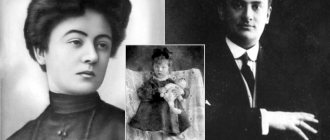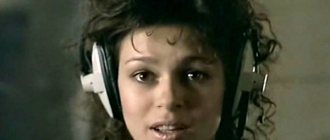| This article or section needs revision. Please improve the article in accordance with the rules for writing articles. |
| Vladimir Ivashov | |
| Birth name | Vladimir Sergeevich Ivashov |
| Date of Birth | August 28, 1939(1939-08-28)[1] |
| Place of Birth |
|
| Date of death | March 23, 1995(1995-03-23) (age 55) or March 22, 1995(1995-03-22)[2](age 55) |
| A place of death |
|
| Citizenship |
|
| Profession | actor |
| Career | 1959—1993 |
| Awards | |
Wikipedia has articles about other people with the last name Ivashov.
Vladimir Sergeevich Ivashov
(August 28, 1939, Moscow - March 23, 1995, ibid.) - Soviet and Russian film actor.
People's Artist of the RSFSR (1980). BAFTA
Award nominee (1962).
Biography[ | ]
Born on August 28, 1939 in Moscow. In 1963 he graduated from VGIK (acting workshop of M. I. Romm)[3]. While still studying at VGIK, he played the role of a young soldier in Grigory Chukhrai’s film “The Ballad of a Soldier,” gaining worldwide popularity[3]. One of the American magazines wrote: “Hollywood stars who trained young actors should board the first plane to Moscow with their students and place them in college, since they make such actors out of nineteen-year-olds.” The painting was awarded as a prize “For high humanism and exceptional artistic qualities.” Popularity fell on Ivashov. After the film by G. N. Chukhrai, the inhabitants of the country began to call the monument to the Russian Soldier in Bulgaria Alyosha. [ source not specified 676 days
]
After “The Ballad of a Soldier,” Ivashov played the role of Pechorin. Due to the fact that during the filming of the film “Taman” the actor was in cold water for a long time and had a serious cold, he was voiced by Vyacheslav Tikhonov.
As a student at VGIK, Ivashov starred in several films at once: “Clouds over Borsk” (1961), “Seven Nannies” (1962) and others. In the adventure film “New Adventures of the Elusive” (1968), Ivashov played the role of adjutant Colonel Kudasov. The song “Russian Field” performed by him became the actor’s “calling card”. In addition, Ivashov starred in the role of Prikhodko’s adjutant in the drama “Iron Stream”. In the 1970s he continued to act a lot in films. A year after the success of “Seventeen Moments of Spring” (1974), the film “Diamonds for the Dictatorship of the Proletariat” was shot at Tallinfilm. In this film, Ivashov played intelligence officer Isaev, the future Stirlitz. In the same year, he played Volodya in the melodrama “When September Comes.”
The directors ruthlessly exploited his appearance without offering anything serious.[4] Even at the Film Actor Studio Theatre, where Ivashov worked for 30 years, he played only two worthwhile roles: Stavrogin in F. Dostoevsky’s “The Possessed” and the Author in A. Blok’s play “Here on Blue Earth.” The February 1983 issue of the magazine “Soviet Screen” featured an article by G. Sukhin dedicated to Ivashov’s work. It said: “Vladimir Ivashov works hard and successfully. And yet, sometimes it seems that some directors do not need him himself, but his appearance - well known to the audience, his charm, which immediately attracts us to his characters, his popularity, which serves as a guarantee of interest in the film. And yet, how different, how unpredictable Vladimir Ivashov can be on the screen - an actor who enjoys the constant love of the audience! "[5]
Ivashov's grave at the Vagankovskoye cemetery
His wife throughout his life was actress Svetlana Svetlichnaya, they had two sons - Alexey and Oleg. Oleg Ivashov (1972-2006) died young and was buried next to his father.
In the early 1990s, there was no work at the Film Actor's Theater, and therefore there was no money. Ivashov, like many artists, suffered from his lack of demand.[6][7] The People's Artist worked as a construction foreman, a loader, and a laborer. Ivashov’s last major film work was Alexander Muratov’s film “Manuscript,” which was released in 1992.
In those same years, he starred in small roles in the historical drama “Tear of the Prince of Darkness,” detective stories “Murder on Zhdanovskaya” and “Felix Detective Bureau.”
He died on the night of March 23, 1995 in the 1st City Hospital at the age of 56 after an exacerbation of a stomach ulcer[8]. The doctor who performed the operation on him turned out to be drunk, and a few hours later he had a second operation, after which his heart could not stand it. He was buried in Moscow at the Vagankovskoye cemetery, on Writers' Alley.
On February 16, 2005, the name of Vladimir Ivashov was assigned to minor planet No. 12978, discovered at the Crimean Astrophysical Observatory.[9][10]
Death
At some point, our hero stopped acting in films. He made his living at a construction site. In 1995, colleagues remembered Ivashov and invited him to the Nika film festival. Vladimir Sergeevich put on an official tuxedo and went to an event organized by the House of Cinema. Our hero with dignity presented prizes to beginners and established actors. And the next day he went to work at a construction site again. His duties included unloading slate and cinder blocks.
In March 1995, Vladimir had to work quite a lot. He wanted to save up a good amount for a gift for his beloved wife. The goal is truly noble. However, due to a busy schedule, a minimum number of days off and lack of normal nutrition, Ivashov developed a stomach ulcer.
During one of the unloading of construction materials, the actor became ill. His colleagues called an ambulance. Ivashov was taken to the 1st City Hospital. Doctors made every effort to save the patient. But their efforts were in vain. On the night of March 23, 1995, V. Ivashov died.
The actor found his final refuge at the Vagankovskoye cemetery. At first, on his grave there was an ordinary cross with a sign indicating his full name, as well as the dates of birth and death. A few years ago, representatives of the acting fraternity paid for the production and installation of a monument made of black granite.
Recognition and awards[ | ]
- Nomination for the British Academy Film Award (1962) - for his performance as Private Alyosha Skvortsov in the film “The Ballad of a Soldier”
- Medal "For Labor Valor" (November 4, 1967)
- Honored Artist of the RSFSR (September 29, 1969)
- Medal “In Commemoration of the 100th Anniversary of the Birth of Vladimir Ilyich Lenin” (April 1, 1970)
- Medal “For the development of virgin lands” (1972)
- Silver medal named after A. Dovzhenko (1972) - for his performance as Alexander the King in the film “Flame”
- People's Artist of the RSFSR (July 25, 1980)
- Excellence in Cinematography of the USSR (December 2, 1980) - for many years of fruitful work in Soviet cinematography
- State Prize of the Mongolian People's Republic (1982) - for playing the main role in the film “Through the Gobi and Khingan”
- Silver medal named after A. Dovzhenko (1982) - for playing the role of Nikitin in the film “The Right to Shot”
Ballad of a Soldier
When Ivashov first came to their VGIK dormitory, Svetlana did not like him. I didn’t like the way he looked, I didn’t like the way he sang. And then VGIK students were shown the film “The Ballad of a Soldier,” in which the main roles were played by their fellow students Volodya Ivashov and Zhanna Prokhorenko.
Svetlana thought: I wish I could meet a guy like Alyosha from the film. She fell in love with Alyosha and increasingly looked at the one who played him. Everyone then thought that Ivashov and Zhanna Prokhorenko were having an affair, but they did not have any affair. And Svetlichnaya was jealous. Back then, many of their students were in love with Ivashov...
Because of the filming of “The Ballad of a Soldier,” Vladimir was left for the second year, and he ended up in the workshop of Mikhail Romm, where Svetlichnaya studied. They kissed for the first time at the rehearsal of “Cossacks”. “Does he really like me?” the actress was worried. She was an ordinary student, and he was a star, with a crowd of fans and trips abroad... The weather passed, and Vladimir introduced Svetlana to his parents. And once on a date he said:
- Svetka, I think I love you.
She was then terribly offended by this “it seems.” But she told her parents that she was getting married.
- Show me the groom! — Watch “The Ballad of a Soldier!”
Filmography[ | ]
- 1959 - Ballad of a Soldier - Alyosha Skvortsov
- 1960 - Leon Garros is looking for a friend - Fedya
- 1960 - Clouds over Borsk - Genka
- 1961 - Evdokia - Pavel Chernyshev
- 1962 - Seven nannies - Victor
- 1964 - Hockey players - German Morozov
- 1964 - I - Birch - pilot
- 1965 - Hero of Our Time - Pechorin
(voiced by Vyacheslav Tikhonov, since Ivashov then suffered a serious cold and lost his voice) - 1967 - Iron Stream - Alexey Prikhodko
- 1968 - New adventures of the elusive - Perov, Kudasov’s adjutant
- 1969 - The Road Home
- 1971 - Putin - Fedor Komrakov
- 1971 - Blue Sky - Andrey Taran
- 1971 - The Crown of the Russian Empire, or Elusive Again - Perov, Kudasov’s adjutant
- 1972 - And the dawns here are quiet - guest of the Brichkins
- 1973 - Discovery - Ilya Stasov
- 1973 - Completely Lost - Colonel Sherborne
- 1974 - Flame - partisan Alexander Korol
- 1974 - Remember your name - Major
- 1974 - Front without flanks - Captain Afanasyev
- 1975 - Diamonds for the dictatorship of the proletariat - Maxim Maksimovich Isaev
- 1975 - When September Comes - Vladimir Kondrikov, Levon’s son-in-law
- 1975 - Yaroslav Dombrovsky - Andrey Potebnya
- 1977 - The Root of Life - Andrei Barbu
- 1977 - Right of first signature - Vladimir Kazakov
- 1977 - Yulia Vrevskaya - general
- 1978 - Father Sergius - episode
- 1978 - A chest of drawers was driven through the streets - investigator
- 1979 - Inquest of Pilot Pirx - Harry Brown
- 1979 - Morning round - Oleg
- 1980 - Star Inspector - Sergei Lazarev
- 1981 - Conflict situation - Anton Pavlovich Soluyanov, foreman of installers
- 1981 - The right to shoot - captain of a patrol ship
- 1981 - Through the Gobi and Khingan - Matveev
- 1983 - Once upon a time there was Peter
- 1984 - Who is stronger than him - Nikolai Petrovich Baratovsky
- 1985 - Day of Wrath - Cast
- 1987 - Christians - reporter
- 1990 - Fufel
- 1990 - This is us, Lord! — Captain Ryumin
- 1991 - Ivan Fedorov - Alexey Adashev
- 1991 - Under the mask of Berkut
- 1991 — Manuscript
- 1991 - Countess - Nikiforov
- 1992 - Russian brothers - Stepan Andreevich, white officer
- 1992 - Tear of the Prince of Darkness - Egorov, hotel manager
- 1992 - Destroy the Thirtieth! - KGB Colonel
- 1992 - Murder on Zhdanovskaya - Viktor Vasilievich
- 1993 - Felix Detective Bureau - Mr. Lowe
Timenote
Vladimir Sergeevich Ivashov
(1939-1995) - Soviet actor, People's Artist of the RSFSR (1980).
An outstanding Russian actor, born on August 28, 1939 in Moscow. In 1963 he graduated from VGIK (acting workshop of M. I. Romm). While still studying at VGIK, he played the role of a young soldier in Grigory Chukhrai’s film “The Ballad of a Soldier,” gaining worldwide popularity.
One of the American magazines wrote: “Hollywood stars who trained young actors should board the first plane to Moscow with their students and place them in college, since they make such actors out of nineteen-year-olds.” The painting was awarded as a prize “For high humanism and exceptional artistic qualities.” And the leading actor, Vladimir Ivashov, gained unprecedented popularity. After the film by G. N. Chukhrai, residents of the country began to call the monument to the Russian Soldier in Bulgaria Alyosha.
After “The Ballad of a Soldier,” Vladimir Ivashov masterfully played the role of Pechorin. Stanislav Rostotsky's lyrical and passionate film is shot with detailed historical and literary accuracy and great respect for the classics. “Hero of Our Time” Grigory Pechorin performed by Ivashov turned out to be very organic and convincing, true from a psychological point of view and possessing true Lermontovian depth and tragedy. The film consists of two parts: “Bela” and “Maksim Maksimych. Taman."
In the first part of the dilogy, the Russian officer Pechorin, serving in the Caucasus, falls in love with the daughter of a local prince, Bela, and persuades her brother Azamat to kidnap the girl. He places the captive in his fortress and achieves her love through long courtship. But over time, the feelings subside. The second episode of the film explains Pechorin’s stay in Taman and talks about his service in the fortress in the company of the old campaigner Maxim Maksimych. “Anyone who has seen the film “Hero of Our Time” will never be able to imagine another Pechorin - only Vladimir Ivashov, the hero of our time, who, unfortunately, turned out to be an “extra person” in this thankless time...” writes the online publication “Tambov” in the section “Culture” in the article “Pechorin... - loader?” dated November 7, 2011.
The scene of Pechorin's monologue is still one of the most striking scenes of Soviet Cinema. Due to the fact that during the filming of the film “Taman” the actor was in cold water for a long time and had a serious cold, Vyacheslav Tikhonov voiced Grigory Pechorin. Pechorin, played by Vladimir Sergeevich Ivashov, turned out to be a bright, deep, internally broken man, painfully and unsuccessfully searching for his true purpose in life, exactly as M. Yu. Lermontov created him in his famous novel. Millions of viewers remember precisely “Hero of Our Time” in the brilliant performance of Vladimir Ivashov.
While still a student at VGIK, Ivashov starred in several films at once: “Clouds over Borsk” (1961), “Seven Nannies” (1962) and others. In the adventure film “New Adventures of the Elusive” (1968), Vladimir Sergeevich Ivashov got the role of adjutant Colonel Kudasov . This film revealed another facet of his talent - Ivashov sang beautifully with a guitar. The song “Russian Field” performed by him became the actor’s calling card forever. He sang it in such a way that all other events of the film faded into the background.
In addition, Vladimir Ivashov starred as Prikhodko’s adjutant in the epic drama “Iron Stream.” In the 70s, Vladimir Ivashov continued to act a lot in films. There were also leading roles. So just a year after the success of “Seventeen Moments of Spring” (1974) with Vyacheslav Tikhonov, the film “Diamonds for the Dictatorship of the Proletariat” was shot at Tallinfilm. In this film, Ivashov played intelligence officer Isaev, the future Stirlitz. In the same year, he played Volodya in the melodrama “When September Comes.”
The directors ruthlessly exploited his appearance without offering anything serious. Even at the Film Actor Studio Theatre, where Ivashov worked for 30 years, he starred in only two worthwhile roles: Stavrogin in F. Dostoevsky’s “The Possessed” and the Author in A. Blok’s play “Here on Blue Earth.” The February 1983 issue of the magazine “Soviet Screen” featured a large article by G. Sukhin dedicated to his work. It wrote: “Vladimir Ivashov works hard and successfully.
And yet, sometimes it seems that some directors do not need him himself, but his appearance - well known to the audience, his charm, which immediately attracts us to his heroes, his popularity, which serves as a guarantee of interest in the film. And yet, how different, how unpredictable Vladimir Ivashov can be on the screen - an actor who enjoys the constant love of the audience!” - they write about him in the newspapers.
His wife throughout his life was the Soviet actress Svetlana Svetlichnaya; in their marriage they had two sons - Alexey and Oleg (died young, buried next to his father).
In the early 1990s, many Soviet actors were unable to adapt to the conditions of their new life. Vladimir Ivashov was no exception. There was no work at the Film Actor's Theater, and therefore there was no money. Vladimir Sergeevich suffered greatly from his lack of demand. In the 90s, he received practically no offers to act in films. And if anything happened, the films were frankly mediocre, participation in which was shameful for the actor.
As Vladimir Ivashov admitted: “Nowadays there is a lot of dirt in films. After them you want to either drink or hang yourself. Despite the tragic ending of “The Ballad of a Soldier,” after watching it, <…> purification occurred in the audience. After that I wanted to live. Today’s cinema, for the sake of effect, is ready to derail everything that remains in a kind, joyful, holy person.” There were practically no offers to act in films. To feed his family, Vladimir got a job at one of the Moscow construction sites. When in the morning, on the subway, he went to work in a construction uniform, many passengers recognized him.
Ivashov’s last major film work was Alexander Muratov’s film “Manuscript,” which was released in 1992. It was a joint Soviet-French production based on the story “Launching” by L. Chukovskaya. Ivashov played the main role in it.
In the same years, he starred in small roles in the historical drama “Tear of the Prince of Darkness”, detective stories “Murder on Zhdanovskaya” and “Felix Detective Bureau”. He never acted in films again. But in order to feed his family, he had to star in two television commercials. It was self-abuse, but the actor went for it.
Shortly before the actor’s death, his more successful colleagues remembered Vladimir Ivashov and invited him to the ceremonial presentation of the highest cinematic prizes “Nika”. Putting on an ordinary suit, contrary to the conditions of the festival, and a homemade bow tie, Vladimir Sergeevich went to the House of Cinema, with dignity presented prizes to the winners, and the next morning he went to the construction site again to load slate and cinder blocks. Svetlana Svetlichnaya, recalling this episode, said in her interviews that at the Nika prize ceremony, Vladimir Ivashov, thanks to his inner aristocracy, even in a jacket, looked as if he was the only one at the entire ceremony wearing a tuxedo. At the NIKA award ceremony in 1993, Vladimir Ivashov uttered a phrase that, in essence, was his life credo: “You shouldn’t perform feats in life, you shouldn’t commit meanness in life.” And he added “I have the honor!”
After being awarded the prize, he took off his homemade bow tie, changed into a worker’s uniform and went to the construction site, where the People’s Artist of Russia earned money to support his family. He did not drink himself to death, complaining about the cruelty of life, and did not betray himself and the standard of Man that he set in “The Ballad of a Soldier.” Natural simplicity and nobility did not allow Vladimir Ivashov to become a star in the full sense of the word. He was not attracted by money, fame, or the abundance of fans. This became especially noticeable and understandable in the last years of his life, when the Honored Artist of Russia, having accepted, but still failing to understand, everything that happened to the country and to cinema during the years of perestroika, became a worker in a construction company.
A brilliant artist with an inimitable demeanor on camera. His distinguishing feature was “genuine popular intelligence.” Vladimir Ivashov died on the night of March 23, 1995 in the 1st City Hospital at the age of 56 after an exacerbation of a stomach ulcer. He was buried in Moscow at the Vagankovskoye cemetery.
On February 16, 2005, the name of Vladimir Ivashov was assigned to minor planet No. 12978, discovered at the Crimean Astrophysical Observatory.
Filmography:
- 1959 - Ballad of a Soldier - Alyosha Skvortsov
- 1960 - Leon Garros is looking for a friend - Fedya
- 1960 - Clouds over Borsk - Genka
- 1961 - Evdokia - Pavel Chernyshev
- 1962 - Seven nannies - Victor
- 1964 - Hockey players
- 1964 - I am Birch
- 1965 - Hero of Our Time - Pechorin
- 1966 - Bela - Pechorin
- 1967 - Iron Stream
- 1968 - New adventures of the elusive - adjutant Kudasov
- 1969 - The Road Home
- 1971 - Putin
- 1971 - The Crown of the Russian Empire, or Elusive Again - Perov, Kudasov’s adjutant
- 1972 - And the dawns here are quiet - guest of the Brichkins
- 1973 - Opening
- 1973 - Completely Lost - Colonel Sherborne
- 1974 - Flame - partisan Alexander Korol
- 1974 - Remember your name
- 1974 - Front without flanks - Captain Afanasyev
- 1975 - Diamonds for the dictatorship of the proletariat - Maxim Maksimovich Isaev
- 1975 - When September Comes
- 1975 - Yaroslav Dombrowski
- 1977 - The Root of Life
- 1977 - Right of first signature - Vladimir Kazakov
- 1977 - Yulia Vrevskaya
- 1978 - A chest of drawers was driven through the streets - investigator
- 1979 - Inquest of Pilot Pirx - Harry Brown
- 1979 - Morning round
- 1980 - What can Kuzenkov do?
- 1980 - Star Inspector - Sergei Lazarev
- 1981 - Conflict situation - Anton Pavlovich Soluyanov, foreman of installers
- 1981 - The right to shoot - captain of a patrol ship
- 1981 - Through the Gobi and Khingan
- 1983 - Once upon a time there was Peter
- 1984 - Who is stronger than him
- 1985 - Day of Wrath
- 1987 - Christians - reporter
- 1990 - Fufel
- 1990 - This is us, Lord!
- 1991 - Ivan Fedorov - Alexey Adashev
- 1991 - Under the mask of Berkut
- 1991 — Manuscript
- 1991 - Russian brothers
- 1991 - Countess - Nikiforov
- 1992 - Tear of the Prince of Darkness
- 1992 - Destroy the Thirtieth! - KGB Colonel
- 1992 - Murder on Zhdanovskaya - Viktor Vasilievich
- 1993 - Felix Detective Bureau - Mr. Lowe
- Recognitions and awards:
- 1975 - holder of the A. Dovzhenko Silver Medal for the film “Flame”
- 1980 - People's Artist of the RSFSR
- 1982 - laureate of the State Prize of the Mongolian People's Republic for the film “Through the Gobi and Khingan”
- 1982 - holder of the A. Dovzhenko Silver Medal for the film “The Right to Shot”
Notes[ | ]
- BNF identifier (French): open data platform - 2011.
- Internet Movie Database (English) - 1990.
- ↑ 12
Vladimir Ivashov - “75 years since the birth of Vladimir Ivashov”, 08.28.2014 // tvkultura.ru
- Fedor Razzakov.
The light of extinct stars. They left that day. - Litres, 2020. - 3464 p. — ISBN 9785425088451. - Andrey Kolobaev.
They will be yours! // Arguments and Facts. - 2020. - No. 20. - ISBN 9785457781108. - Igor Logvinov, "The Ballad of Alyosha. To the 75th anniversary of Vladimir Ivashov, “August 27, 2014 // Evening Moscow (unspecified)
(inaccessible link). Retrieved September 29, 2020. Archived September 30, 2020. - Anton Sekisov, “What happened to actor Vladimir Ivashov,” 06/11/2015 // rg.ru
- “The minor planet was named after Vladimir Ivashov,” 02/16/2005 // tvkultura.ru
- "(12978) Ivashov = 1978 SD7 = 1988 TM" // Minor Planet Center
Expert in anti-scientific lies: why General Ivashov tells tall tales
It all started with the fact that Ivashov drew up and signed on behalf of a certain “All-Russian Officers’ Assembly” a rather dubious document, in which this non-existent organization demanded to regulate the legal status of PMCs in Russia. Besides him, only Evgeniy Shabaev, known as the “Donetsk city madman,” confirmed his signature on this paper. Colonel Vladimir Petrov, whose name is also on the list of signatories, denies any involvement in this “appeal.”
But let's return to Leonid Ivashov. The equanimity with which this “military expert” was pulled out by the liberal media from programs about reptilians and conspiracy secrets is surprising. It is no less surprising how a thieving “armchair general,” who was essentially expelled from the Ministry of Defense during the anti-corruption purges of 2001, became an expert in the so-called “alternative history.” On such programs, a former adjutant and military “public relations specialist” tries to pass as almost an employee of the Soviet Annanerbe, which never existed. Referring to “secret KGB documents”, which, however, no one, including Ivashov, has ever seen, the former military man talks about occult expeditions, Wehrmacht flying saucers, Hitler and Eva Braun’s turtles, and so on.
Let’s take any broadcast of a “military expert”, for example, on the Internet channel “Day TV”. There, Ivashov questions the official history of humanity, suggesting that Homo sapiens has existed for millions of years:
“Suddenly, entire cities are found flooded, millions of years old,” says Ivashov, without providing any evidence or references to other people’s works. “They find cities in the same India - Makinjdara.”
“Mohenjo-Daro,” the presenter tactfully corrects the “expert.”
“Makhenzdara, yes,” the general still calls the famous city incorrectly. - City. And modern physicists prove that he died as a result of the use of nuclear weapons. <…> When you read the manuscripts of Tibetan sages, Tibetan archives, you know that, it seems to me, there is more truth there than in our materialistic science. That’s what fascinated me.”
Let's look at this fragment. The fact that Ivashov incorrectly names the city several times suggests that he did not read about it, but heard about it in a similar program about reptilians from the planet Nibiru. But let's imagine that Ivashov actually read ancient Tibetan manuscripts. He would not have found a word about Mohenjo-Daro there, because this name was invented by the Indian archaeologist Banarji at the beginning of the 20th century. In one dialect of Sanskrit it means “Hill of the Dead.” What the actual name of this city is, none of the scientists knows, because the writing of the Harappan civilization, to which Mohenjo-Daro belongs, has not yet been deciphered.
Ivashov also lies about the nuclear explosion that allegedly caused the death of the city. Modern physicists, on the contrary, are forced to prove the opposite. For example, a whole lecture at the conference “Scientists against Myths” about Mohenjo-Daro was given by a candidate of technical sciences, senior researcher at the IMASH RAS. A.A. Blagonravova, explosion physics specialist Mikhail Bubnov. And we only looked at a minute of airtime, and Ivashov literally settled on such anti-scientific programs.
But maybe the retired general is simply forced to talk nonsense in order to be invited to such programs. Maybe not everything is so bad, and Ivashov can still show off his intelligence when needed. I have to upset you. The general's forecasts have always been unscientific and unfounded, which becomes especially obvious with the passage of time.
This is what Ivashov said on August 31, 2001:
“By the way, I’m offering a bet that in a few years Belarus will be independent. Lukashenko, of course, will be removed from power, there is no doubt about it. Negotiations will be held on Belarus’s accession to the European Union, possibly NATO.”
And here is this passage from March 25, 2003:
“The very statement that Iraq is ready to use weapons of mass destruction confirms my idea that nuclear weapons can be used by the United States and Israel. And I said before the war, and already during the war that began, I said that the use of nuclear weapons by the anti-Iraqi coalition would be preceded by a provocation about an alleged chemical strike on the troops.”
None of this, as you might guess, happened. In Ivashov, for a long time now, none of the authoritative publications have needed a military expert, so the general is forced to tell tales in his old age. No, no, and they’ll call you to “Rain” to tell some story.
Photo: eadaily.com
Video: youtube.com \ ANTHROPOGENES RU










